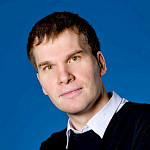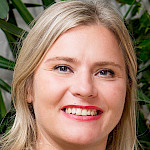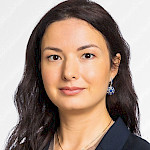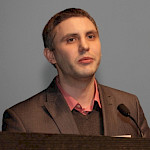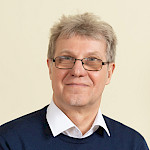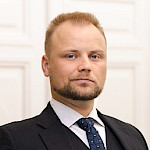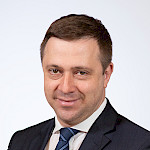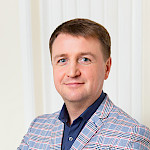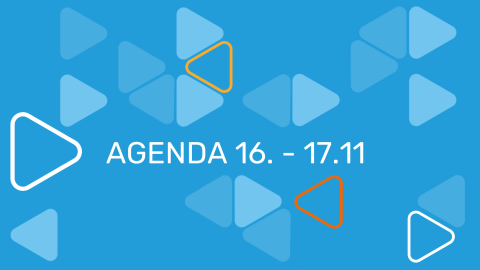Agenda
16.11.2023

The project “Improving Communication with Migrants for Crisis Preparedness: Lessons Learned From COVID-19”, which was carried out by researchers in Estonia, Finland and Latvia, sought to map obstacles in communicating with communities with low command of the official language and identify good practices that could be implemented in future emergencies. The results show that, in addition to the underlying distrust of state institutions among the population, there have been several obstacles that have further aggravated the situation and perhaps put society at risk, including insufficient information available in non-official languages or the slow provision of this information; conflicting or confusing messages from official sources; the viral spread of misinformation in different spheres, such as social media; a lack of cooperation between governments and other stakeholders; and monolithic strategies that are not adapted to the needs and concerns of specific communities, such as the approach adopted during the vaccination campaign.
The onset of the war significantly increased immigration from Ukraine. When assessing further developments, it's essential to consider both scenarios: on one hand, a majority of Ukrainians might leave Estonia after a brief stay; on the other, the duration of their stay could extend if the war drags on. The number of refugees continues to rise, and many will likely settle in Estonia permanently. The report delves into the potential long-term effects of this refugee influx on various aspects: employment, the Estonian economy, and the state's fiscal balance.

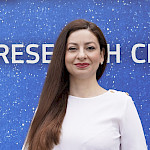
Refugee Crisis Challenges of the EU: Social and Economic Aspects
Over the past decades, Europe has faced several waves of refugees which kept their social and economic integration at the centre of the attention of policymakers (at local, national, and EU levels) and scholars. The stock of accumulated evidence allows for drawing lessons and identifying success (or failure) factors that emerge from policy practice. However, it is also clear that every wave of refugees, including the one caused by the war in Ukraine, has its own characteristics which suggest that past experience is not necessarily generalisable and that one-size-fits-all approaches should be avoided. The presentation will focus on (i) the promising practices of socio-economic integration of humanitarian migrants and (ii) on the distinct features of Ukrainian refugees, their distribution patterns across EU Member States, integration path and return prospects.

Speaking Swedish - The Role of Language Skills in an Integration Support Project
Language skills are often described as a key to the successful integration of immigrants into the labour market and society. However, ideas of what constitutes language skills and the level of proficiency required tend to shift over time and, depending on context and demands placed on immigrants, are often unclear. In this presentation we will use a local labour market project as an example of this challenge, language skills emerged as a central issue, giving rise to new activities and a re-categorisation of the group to be targeted. The material of the study is based on a qualitative, longitudinal field study that included interviews and observations/shadowing. It concludes that the meaning of “language skills” is situated and can remain ambiguous and open to interpretation at the same time as requirements for language skills become a tool for classification.
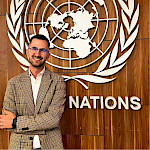
Integration of Bosnians – On the Move
Following key milestones, the Bosnian-Herzegovinian diaspora migrated within three different migration waves to Germany. Starting from the 1920s and the first “Guest-worker” program, following the 1990s and the “Refugee crisis” until today´s mostly “Labour migrations”. In the migration flow, Bosnian-Herzegovinian migrations were influenced by different factors, but how does health pandemic such as COVID19 influence these migrations? The main aim of this work is to explore, investigate and understand what the perceptions and motives behind the migrations of Bosnian-Herzegovinian citizens. Combined with interviews and questionnaires, this work tends to provide the broader picture of the perceptions that the Bosnian-Herzegovinian diaspora has on migrations. Also, the aim of the work is to explain how COVID19 affected the flow of migrations for Bosnian Herzegovinian citizens.
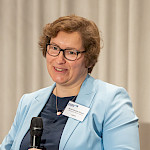
Needs, Intentions and Integration Challenges of Displaced Populations
Through IOM's Displacement Tracking Matrix (DTM), IOM has been carrying out surveys of displacement patterns, needs and intentions. In countries directly neighbouring Ukraine, DTM was activated in March 2022. Meantime, IOM has collected data in the 11 countries included in the Regional Response Plan for Ukraine in 2023: six countries neighbouring Ukraine (Belarus, Hungary, Poland, Republic of Moldova, Romania and Slovakia) and five countries particularly impacted by the arrival of refugees from Ukraine (Bulgaria, Czechia, Estonia, Latvia and Lithuania). The presentation will discuss some of the main factors identified relating to Ukrainian refugees present in these countries, and present some areas of intervention relating to the socioeconomic inclusion of displaced populations.

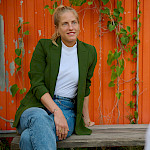
The societal integration of Ukrainian war refugees in Switzerland since March 2022: Structural problems, missed opportunities and possible improvements
Around 80,000 refugees from Ukraine have been granted temporary protection status S in Switzerland in the last 1 1/2 years. Two thirds of these persons are female. A large proportion of the adults among them have a higher education and professional experiences that correspond to the current shortage of skilled workers in Switzerland. Nevertheless, the employment rate of Ukrainian war refugees in autumn 2023 is only 16%. 6 The presentation shows (1) which specific circumstances fundamentally hinder the professional and social integration of Ukrainian refugees in Switzerland, (2) how the integration potential of civil society has been largely ignored in this context, and (3) which more promising precautions would be indicated.

Psychosocial integration: Supporting war refugee integration through a trauma-informed lens
The psychosocial needs of war refugees and asylum seekers are often sidelined in an effort to meet more immediate needs upon arrival into a new country. Yet, the trauma experienced by war refugees often impacts their ability to integrate into new environments, while also impacting the humanitarian practitioners facilitating integration support. Using examples from Ukraine, Syria, Afghanistan and another international contexts, this talk will explore the challenges associated with addressing the psychosocial needs of refugees while exploring best practices in meeting the psychosocial needs of refugees through simple, but effective, frameworks of trauma-informed support.

Refugees Integration in Central Europe: What is the Role of the Discourses surrounding Immigrants and Refugees
It is often argued that discourses surrounding immigrants and refugees significantly influence public opinion towards them, and consequently, the quality of their integration into host societies. This study examines the discourses related to immigrants and refugees in Central Europe, comparing them during two distinct periods: the 2015-2016 refugee "crisis" in the EU and the period following Russian aggression against Ukraine. The research reveals notable differences between these two periods in how politics and society portrayed immigrants and refugees. These differences subsequently affected the likelihood of their successful integration during these two timeframes.

Opportunities seized: case study of the Northern German city of Flensburg and examples of successful integration projects and initiatives for refugees
The presentation aims to explore most successful integration policies and initiatives developed to support the well-being and integration of refugees. It will touch upon the challenges faced by refugees in the German context and address solutions developed through the collaboration between the state, civil society and refugee initiative groups.

17.11.2023

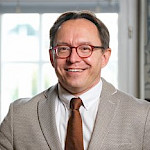
Keeping the Faith: Challenges in an Era of Political Stress
The question of national minority protection is a very sensitive one in our current day and age. The most important challenge currently is to continue to keep in mind the principles of inclusion and respect that are at the core of European values. These must not be sacrificed amid prevailing geopolitics, populist sentiment or nationalist resurgence. Treating minorities as a social, linguistic or educational problem is not a solution for the question of long-term coexistence. Majority-minority relations are never a unilateral issue where only one side needs to take action or is to blame. The securitization of minorities is a particularly dangerous phenomenon in the current situation, when minority communities are seen as fundamentally suspect and must be forced to choose sides or demonstrate extra loyalty in order to be accepted. Collective blame or guilt cannot become a new norm.
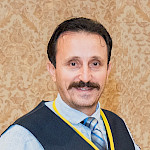
ENABLE Project as a way of Best Integration Practices for the European Union and beyond
ENABLE (ENABLing School Integration of migrant and refugee children through social and Emotional learning interventions to address psychosocial trauma) Project emerges as an innovative approach at a time when millions of people are displaced from their homes due to 11 war, conflict and investigations, poverty, climate change or in the hope of a better life. According to UNICEF, 1 in every 8 migrants is a child. It is precisely at this stage that the ENABLE project plays an important role in the treatment of psychosocial trauma among Migrant, Refugee, and Displaced Children (MRDC) children. It is recognized as an institution that can promote resilience and enhance students' social and emotional development, thus teaching children to build trusting relationships with others while helping to develop self-confidence and emotional regulation skills.
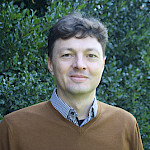
‘Good practices’: Quality criteria and adaptability
‘Best practices’ in integration support, mutual learning and transfer of proven practices are prominent on the European integration policy agenda and are gaining the attention of both practitioners and policymakers. But what exactly constitutes a ‘good practice’ often remains unclear. Also, adaptation of a model found elsewhere and the direct transfer of know-how is surprisingly rare given the multitude of integration practices and policies implemented across Europe. Mostly drawing on results of the ‘Sustainable Practices of Integration (SPRING)’ project and its toolkits and database of assessed practices, this presentation will highlight quality criteria of good practices and the conditions under which model practices can effectively inspire the development of new practices.

Effective inclusion of refugees: Participatory approaches for practitioners at the local level
The presentation covers a toolkit, which has been developed by the UNHCR and the Migration Policy Group. It aims to give practical guidance to local actors and to further inspire them to include refugees. The toolkit draws from the practical experiences of municipal authorities and local actors, translating national policies into solutions such as appropriate housing, access to documentation and social and economic inclusion. These solutions work best when refugees are fully included in their design and development.

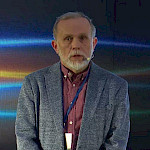
Who are "our people" in times of war?
The aggressive war of Russia against Ukraine has a profound impact on the integration of Estonian society. It has heightened the societal urge to view national relationships through a stark 'us versus them' perspective. Both the majority and minority groups in Estonia are internally fragmented, with varying attitudes ranging from radical to moderate. However, the intense circumstances of the war have led to a generalization of the opposing side, often viewed solely through its most extreme elements. This presentation delves into opinion polls on critical political issues, conducted recently by the Government Office of the Republic of Estonia and the Friedrich Ebert Foundation. It puts forth three key points: 1) The notion of "our people" should not be defined by nationality, which is currently a common practice in Estonian public debates. Instead, the main integration challenge lies not in nationality but in radicalism, which transcends national boundaries; 2) The changing attitudes among the Russian-Estonian population indicate a significant shift in identity towards a stronger alignment with the Estonian state, noticeable across various age groups; 3) The role of Estonia's national integration policy is to foster these positive trends highlighted in the research, particularly in the context of the ongoing educational reforms.
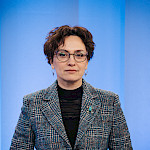
Russia´s Exodus after the 24th of February 2022
Two years after the war broke out, Russia’s emigration potential is nearly depleted. Neither new mobilisation nor increased combat will result in a new exodus of Russians from the country in the coming years. The countries of Central Asia and the South Caucasus are faced with the challenge of properly regulating the influx of Russians in order to reap benefits without exacerbating social tensions in the hosting communities, which may require international actors to interfere. The EU member states will have to develop a more uniform strategy for accepting Russians from risk groups, as well as legal migration pathways for Russians who may benefit the EU labour market.
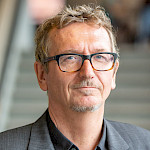
The New Minority. People Without a Migration Background in the Superdiverse City
One of the most important competences of this century is learn to live and work with people who are on certain identity markers very different from yourself. Those who are able to master this competence will be more successful, happy and feel more belonging in the superdiverse city of tomorrow. In the Becoming a Minority (BaM) project we looked at how people without migration background learned to ""do diversity"" in six majority minority cities in Europe. How do they experience today’s superdiverse cities? How do they engage with diversity? These and related questions were answered in the ERC Advanced Grant BAM project. We found that the people who have learned to ""do diversity"" have more social contacts and enjoyable interactions, resulting in a greater sense of belonging and safety in the superdiverse neighborhoods in which they live.

On November 17th, from 15:00 to 16:30, a debate will be held as part of the integration conference on the topic, “Estonia's Integration Capacity During Crises.”
The debate will address questions based on the conference's four discussion themes:
- Problems of forced migration: Social and Economic Aspects
- War Refugee Integration: Academic Approach vs. Practice
- Best Integration Practices for the European Union and beyond
- Social Cohesion and State Security: Where Is the Line?
Contacts of organizer
Contact person
Ivan Polynin
Head of Research Activities
Integration Foundation






